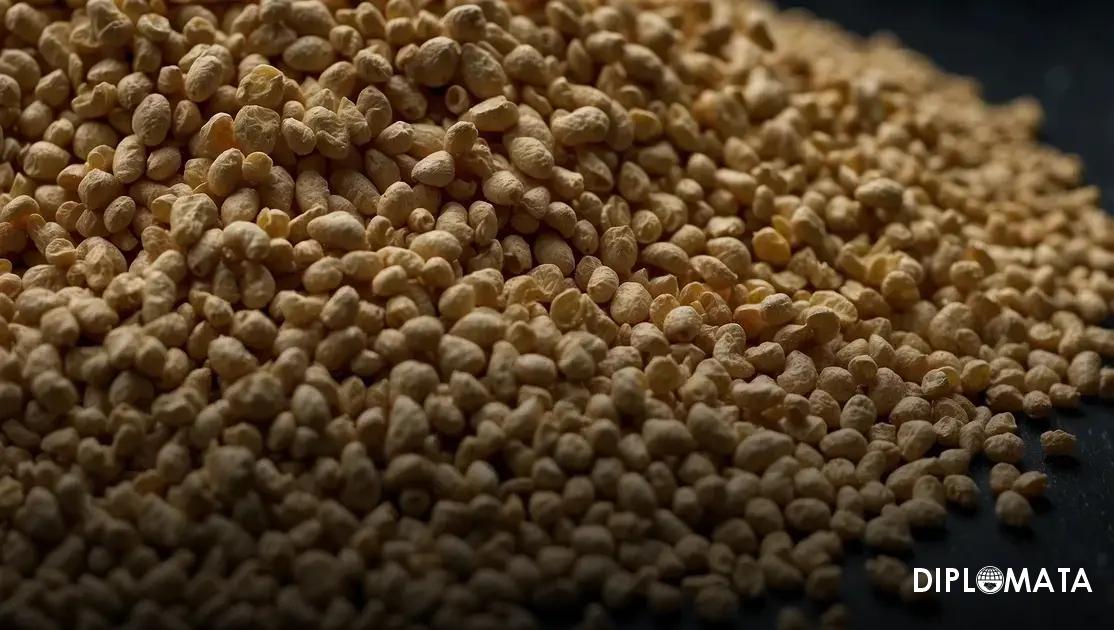Understanding the Glycerin Supply Chain
The glycerin supply chain encompasses the entire process of sourcing, producing, and distributing glycerin, a highly versatile ingredient used in various industries, including pharmaceuticals, cosmetics, and food production. This supply chain is critical for companies like Diplomata, which pride themselves on delivering high-quality glycerin to international markets, particularly the United States. The efficiency of this supply chain directly impacts product quality, availability, and pricing, making it essential for manufacturers and suppliers alike to optimize their operations.
Sourcing Raw Materials for Glycerin
The first step in the glycerin supply chain involves sourcing raw materials, primarily derived from vegetable oils or animal fats. These materials undergo a process called transesterification, where they are converted into glycerin and biodiesel. Diplomata ensures that the raw materials sourced are of superior quality and comply with international standards. This commitment to high-quality sourcing not only enhances the end product but also establishes trust with clients who depend on consistent quality.
Production Processes in Glycerin Manufacturing
After sourcing, the next phase in the glycerin supply chain is the manufacturing process. Glycerin can be produced through various methods, including chemical synthesis and natural extraction. Diplomata utilizes advanced production techniques that adhere to stringent quality control measures. This ensures that the glycerin produced is refined, pure, and meets the specific needs of different industries, thereby reinforcing the company’s reputation as a leading supplier.
Quality Control and Assurance
Quality control is a pivotal aspect of the glycerin supply chain. Diplomata implements rigorous testing and quality assurance protocols at every stage, from raw material sourcing to final product delivery. By adhering to global industry standards, the company guarantees that its glycerin products are free from contaminants and meet the required specifications for various applications. This focus on quality assurance builds long-term relationships with clients, who can trust the reliability of each shipment.
Logistics and Distribution Strategies
The logistics of the glycerin supply chain involve the careful planning and execution of transportation and distribution. Diplomata employs efficient logistics strategies to ensure timely delivery of glycerin to the United States and other international markets. This includes optimizing shipping routes, utilizing reputable carriers, and maintaining transparent communication with clients throughout the distribution process. Such strategies are crucial for minimizing delays and ensuring that the glycerin reaches its destination in optimal condition.
Regulatory Compliance in Glycerin Exports
Compliance with regulatory requirements is another essential component of the glycerin supply chain. Diplomata is well-versed in the regulations governing the export of glycerin to the United States, including safety standards and environmental considerations. By maintaining compliance with these regulations, the company not only avoids potential legal issues but also reinforces its commitment to ethical practices and sustainability in the glycerin supply chain.
Market Demand and Trends in Glycerin Usage
Understanding market demand is vital for effective supply chain management. The glycerin supply chain is influenced by evolving trends in various industries, such as increased demand for natural and organic products in cosmetics and food sectors. Diplomata continuously monitors these trends to adapt its production and supply strategies accordingly. By aligning its offerings with market needs, the company ensures sustained growth and remains a top choice for clients seeking premium glycerin.
Challenges in the Glycerin Supply Chain
Despite the robust framework of the glycerin supply chain, challenges persist, such as fluctuations in raw material prices and geopolitical factors affecting trade. Diplomata proactively addresses these challenges through strategic planning and risk management initiatives. By diversifying its supplier base and maintaining strong relationships with stakeholders, the company mitigates potential disruptions and ensures a stable supply of glycerin to its customers.
The Future of the Glycerin Supply Chain
The glycerin supply chain is poised for innovation, with advancements in technology and sustainability practices shaping its future. Diplomata is at the forefront of these developments, investing in research and development to enhance production efficiency and reduce environmental impact. As the demand for glycerin continues to grow, the company is committed to evolving its supply chain practices to meet the needs of a changing marketplace, ensuring its position as a leading supplier in the industry.


